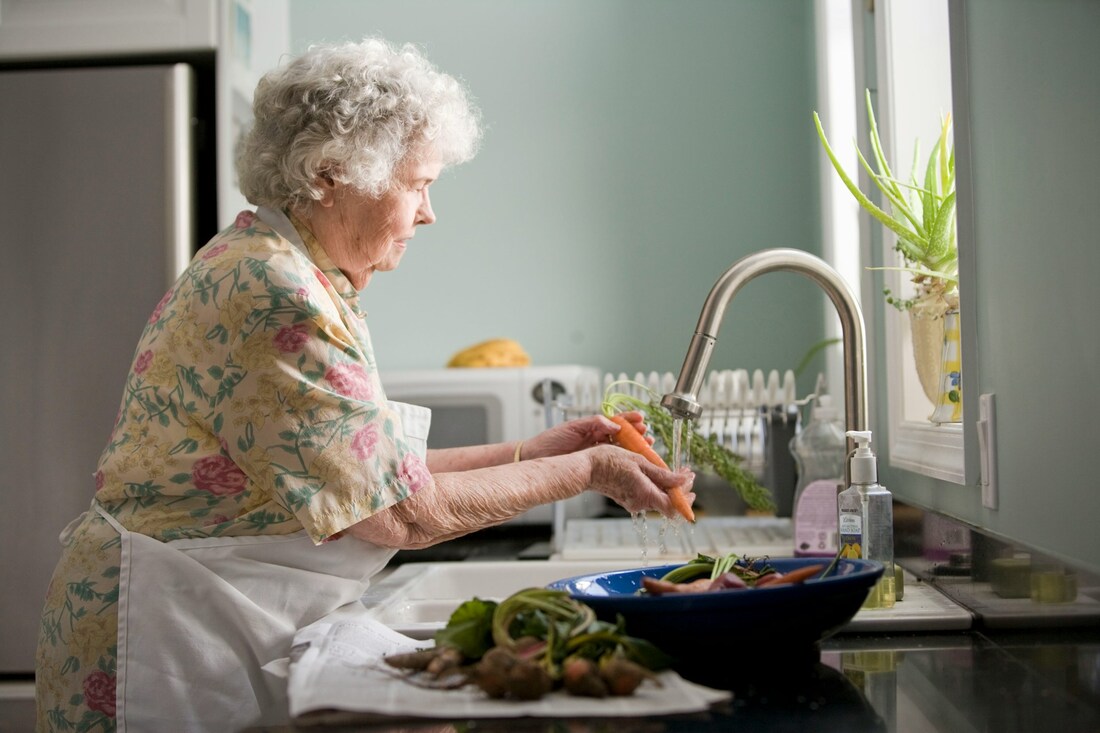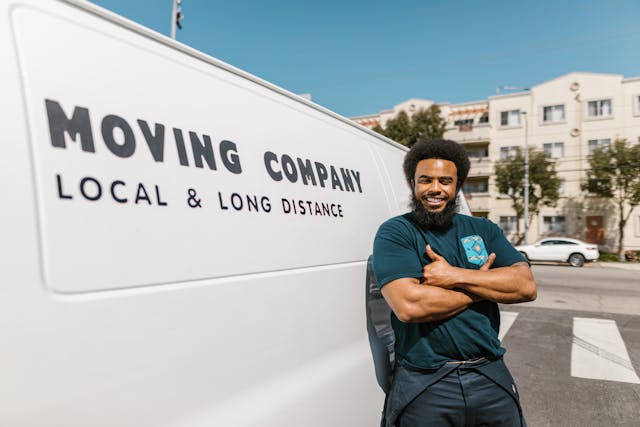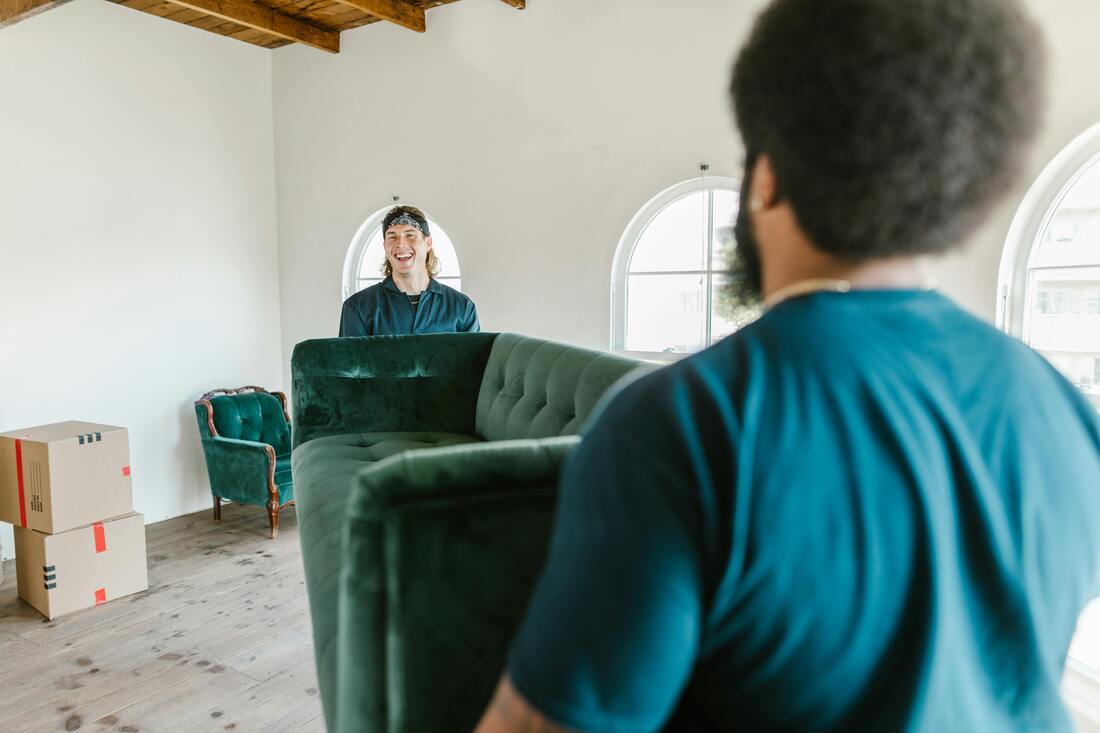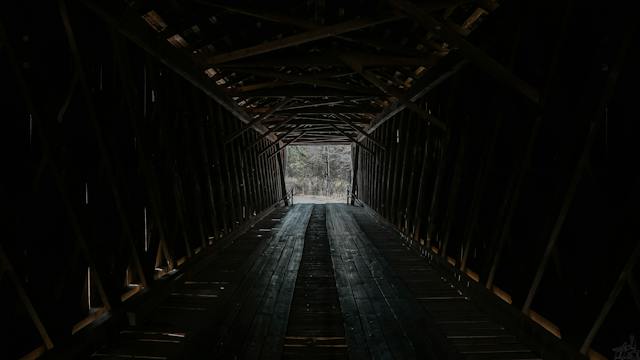Livingston County Consortium on Aging
|
As a senior, you want to have as much support as possible. Sometimes, that means you need to move to truly live your best life. Being close to the people who love you the most can provide you exactly that. Therefore, we want to discuss the benefits of moving closer to family for seniors. Knowing this information can help you decide whether that is the right step for you to embark on a move and get closer to your family members. Emotional support from your family For seniors, being closer to family offers priceless emotional support. Close relationships with loved ones provide a sense of purpose and belonging. Seniors can feel appreciated and understood when family members participate in everyday activities and provide encouragement. Seniors' lives are meaningfully better by this closeness, which enables stronger connections, experiences, and the delight of seeing family milestones together. Having your family around as a senior can make your life much easier and help you cultivate a positive mindset in your senior years, creating a fulfilling life. Overall, the emotional aspect of it is not something to overlook. Improved physical health Seniors who engage with their family on a regular basis may experience improved physical health. Walking, playing with grandkids, and going on family trips are just some of the common family activities. These will promote a more active lifestyle. With such activity, you'll improve general fitness, strength, and mobility. Family members can also have an impact on a better diet. They can do so by sharing wholesome meals and keeping an eye on nutritional requirements. In addition, family members can support older adults in following their medical regimens, which include taking prescription drugs on schedule and going to regular checkups. Generally, seniors with close family relationships live in environments that support and maintain their physical health. Safety and security Moving closer to family offers significant safety benefits for seniors, particularly in emergencies. Of course, they can even help with prevention as they can present you with some essential home security tips for seniors that can be of great help. Having family nearby ensures rapid response times, which can be critical in urgent situations. Family members can quickly recognize signs of distress or health issues, providing immediate assistance or contacting emergency services without delay. This proximity also allows for regular check-ins, reducing the risk of unnoticed accidents or medical problems. Above all, your family will care about your safety the most. So, who better to have around in case you're facing something extraordinary? Medical and personal care Living close to family members guarantees that help will always be accessible for routine medical requirements, emergency room visits, and doctor visits. Family members can assist with care coordination, make sure seniors follow through on medicines and treatments, and remind them of their upcoming doctor's appointments. Having family close by means quicker response times in case of health issues, providing peace of mind. Personal care, such as help with grooming, meal preparation, and mobility, becomes more accessible. With the people you love the most around, managing your health and well-being will become prompt and effective. A better social life There's no doubt that living without family and friends close by can sometimes be very lonely. That's why one of the benefits of moving closer to family for seniors is a much better social life. Imagine going to celebrations and get-togethers with your family. Seniors who participate in these events experience a greater sense of community and interpersonal connections. Having conversations with family members of different ages keeps things interesting and varied, which uplifts the soul and stimulates the mind. Family members often introduce seniors to their social circles, broadening their network and creating new friendships. This increased social activity can diminish isolation, promoting emotional well-being and a more fulfilling life. The presence of family ensures that seniors have consistent companionship, making their daily lives more enjoyable and socially rich. Support with daily activities In addition to other household tasks, family members may assist with cooking, cleaning, and laundry to maintain a comfortable home. Older adults who are physically challenged by tasks like grocery shopping and medication pickups can get assistance from them. Providing transportation to social events and appointments allows family members to alleviate the pressure of getting around independently. Helping elders with personal care tasks like dressing and bathing also guarantees that they keep their cleanliness and dignity. Seniors' overall quality of life is improved by being able to save energy for activities they like, thanks to this practical support. Moving closer to family can have a positive impact on finances Moving closer to your family can sometimes be expensive. Let's say you're a senior who plans to embark on an interstate move, moving from New Hampshire and hiring state-to-state movers to get close to your family here in Michigan. Such a big move can have many expenses. However, there are even many financial benefits to this move after you complete the relocation. Here are just some examples:
Reduced stress and anxiety
Family members can lessen the stress on seniors by providing useful assistance with everyday duties and decision-making. This trustworthy support system can help seniors feel calmer and more at ease, greatly enhancing their mental health and lowering their stress levels overall. A life with as few stressful situations as possible will greatly benefit seniors. We're sure that being close to family can make this a realistic goal. The benefits of moving closer to family for seniors—Final thoughts After looking at the benefits of moving closer to family for seniors, we're sure it will be enticing to consider your relocation. Whether you're moving across Livingston County, Michigan, or the entire US, there will be certain positive sides to this big step. Even with all the institutions, professionals, and good people trying to help seniors, sometimes it just can't compare to the support seniors get from a loving family.
0 Comments
Finding the right retirement community is fundamental for enjoying your golden years. Michigan offers a variety of retirement communities, each with unique amenities, environments, and services tailored to meet the diverse needs of retirees. Whether you prefer a busy urban environment or a serene countryside setting, Michigan has options for everyone. Here, we present the top ten retirement communities in Michigan to help you make an informed decision. Why Choose Michigan for Retirement? Michigan is an excellent state for retirement due to its diverse landscapes, affordable living, and abundance of recreational activities. The state has beautiful Great Lakes shorelines, picturesque small towns, and vibrant urban areas. Retirees can enjoy a mix of cultural experiences, from world-class museums and theaters to local festivals and farmers' markets. Additionally, Michigan's cost of living is generally lower than the national average, making it an attractive option for those on a fixed income. The state also experiences all four seasons, offering a variety of outdoor activities year-round. With its friendly communities and high-quality healthcare facilities, Michigan provides a welcoming and supportive environment for retirees. 1. Henry Ford Village Henry Ford Village, located in Dearborn, is a popular choice among retirees for its comprehensive amenities and vibrant community life. This community offers various housing options, from independent living apartments to assisted living and skilled nursing care. Residents enjoy access to fitness centers, swimming pools, and dining venues. The community also provides numerous activities, such as art classes, gardening clubs, and social events, ensuring a dynamic and fulfilling retirement experience. 2. The Village of East Harbor The Village of East Harbor in Chesterfield is renowned for its picturesque setting and extensive services. It features independent living, assisted living, memory care, and skilled nursing facilities. The community's amenities include a wellness center, an indoor pool, walking trails, and multiple dining options. The Village of East Harbor is also known for its active lifestyle programs, offering residents plenty of opportunities to stay engaged and connected. 3. Glacier Hills Senior Living Community On our list of top retirement communities in Michigan, Ann Arbor’s Glacier Hills Senior Living Community provides a blend of cultural richness and natural beauty. With a range of living options from independent apartments to skilled nursing care, Glacier Hills caters to diverse needs. The community is well-equipped with fitness centers, a pool, dining venues, and a performing arts center. Residents can participate in educational programs, cultural events, and recreational activities, making it a vibrant place to live. 4. Independence Village of Plymouth Independence Village of Plymouth is in a charming, historic area, offering independent and assisted living options. This community is known for its spacious apartments, well-maintained grounds, and a variety of on-site amenities, including a fitness center, a beauty salon, and multiple dining options. The staff at Independence Village are dedicated to providing personalized care and a welcoming atmosphere, ensuring residents feel at home. 5. Fox Run Senior Living Fox Run in Novi is a premier retirement community that offers a full continuum of care, from independent living to skilled nursing. The community boasts numerous amenities, including a fitness center, swimming pool, dining venues, and a clubhouse. Fox Run emphasizes an active lifestyle, providing residents with clubs, social events, and educational programs. The beautifully landscaped grounds and convenient location add to its appeal. 6. Waltonwood at Cherry Hill Located in Canton, Waltonwood at Cherry Hill offers luxurious retirement living with a focus on quality care and comfort. The community provides independent living, assisted living, and memory care services. Residents enjoy access to a fitness center, theater, salon, and gourmet dining. Waltonwood at Cherry Hill also offers a variety of social and recreational activities, promoting a strong sense of community and engagement among residents. 7. Vista Springs Timber Ridge Vista Springs Timber Ridge in East Lansing is known for its high standard of care and elegant living spaces. The community offers assisted living and memory care services, focusing on creating a vibrant and supportive environment. Amenities include a wellness center, fine dining, and beautifully landscaped outdoor areas. Vista Springs Timber Ridge also offers various programs and activities designed to enhance the quality of life for its residents. 8. Bickford of Midland Bickford of Midland provides retirees with a warm and welcoming environment, offering independent living, assisted living, and memory care options. The community features comfortable living spaces, dining options, and numerous amenities, including a fitness center and outdoor recreational areas. Bickford of Midland is known for its personalized care plans and a strong sense of community, ensuring residents feel valued and supported. 9. Sanctuary at Bellbrook Sanctuary at Bellbrook in Rochester Hills offers a serene and secure environment with a range of living options, including independent living, assisted living, and skilled nursing care. The community has a wellness center, library, chapel, and multiple dining venues. Sanctuary at Bellbrook also provides various recreational and social activities, promoting an active and fulfilling lifestyle for its residents. 10. The Fountains at Bronson Place Located in Kalamazoo, The Fountains at Bronson Place is a highly regarded retirement community offering independent living, assisted living, memory care, and skilled nursing services. The community features beautifully landscaped grounds, a fitness center, a swimming pool, and numerous dining options. Residents can enjoy many different activities, from educational programs to cultural events, ensuring a rich and engaging retirement experience. Making Your Move to Michigan Stress-Free Relocating to one of these top retirement communities in Michigan can be a positive experience but might also cause some anxiety. However, hiring cross country movers in Michigan can simplify the process significantly. From packing to transportation, interstate movers can make it stress-free by handling all the logistics. Whether you're moving to Michigan from another state or within the state, professional movers ensure your transition is smooth and worry-free, allowing you to focus on settling into your new community and enjoying your retirement. Choose from Some of the Best Retirement Communities in Michigan
Choosing the right retirement community is a significant decision that can greatly impact your quality of life. Michigan offers many options, from luxurious communities with extensive amenities to cozy, supportive environments. The top retirement communities in Michigan provide diverse options to suit different preferences and needs, ensuring you can find the perfect place to enjoy your retirement years. Building relationships with younger generations can be an enriching experience. It bridges the gap between different age groups, promotes mutual understanding, and creates lasting connections. Whether you are a grandparent, a community volunteer, or simply a senior interested in connecting with younger people, this guide will provide practical tips and strategies to help you build strong, meaningful relationships. Understanding the Younger Generation Learn About Their Interests One of the first steps is understanding the interests of those younger than you. Younger people often have different hobbies, passions, and technologies they enjoy. Take the time to learn about these interests. Whether it's video games, social media platforms, or music genres, showing genuine curiosity about what they enjoy can be a great conversation starter and a way to bond. Stay Open-Minded Younger generations may have different perspectives and experiences than those of older generations. It's important to approach these differences with an open mind. Avoid making assumptions or judgments based on age. Instead, listen actively and try to understand their viewpoints. This openness can pave the way for mutual respect and deeper connections. Effective Communication Use Clear and Simple Language Communication is key to building any relationship. Using clear and simple language can help avoid misunderstandings when interacting with younger people. Avoid using jargon or overly complex terms that might not be familiar to them. Instead, focus on being concise and direct in your conversations. Embrace Technology Technology plays a significant role in the lives of younger generations. Embracing technology can be a great way to connect with them. Learn how to use popular social media platforms, messaging apps, and video call tools. This shows that you are willing to meet them on their turf and provides additional avenues for communication and interaction. Be Patient and Listen Building relationships with younger generations requires patience. Younger people may not always communicate in ways that are familiar to you. Be patient and take the time to listen to what they have to say. Finding Common Ground Share Your Experiences One way to build relationships with younger generations is by sharing your own experiences. Younger people can learn a lot from the wisdom and life experiences of older generations. Share stories from your past, including lessons you've learned and challenges you've overcome. This not only provides valuable insights but also helps to humanize you and make you more relatable. Participate in Activities Together Finding common activities that both you and younger people enjoy can strengthen your bond. This could include hobbies like gardening, cooking, or sports. Participating in activities together creates opportunities for meaningful interactions and shared memories. Asking for Help One effective way to connect with younger generations is by asking for their help. Whether setting up new technology, learning a new skill, or assisting with a move, seeking their assistance can create a sense of partnership. For example, during a move, you can involve them in the process and share the experience. In addition to that, collaborating with a professional service like moveinterstate.com can help you both handle the heavy lifting while younger generations help with organizing and planning. This not only makes the task more manageable but also encourages a spirit of teamwork and mutual support. Attend Community Events Community events, such as local festivals, workshops, or volunteer opportunities, can be excellent venues for building relationships with younger generations. These events provide a relaxed and social environment where you can meet and interact with younger people who share similar interests. Building Trust and Respect Show Respect for Their Opinions Respect is a fundamental aspect of any relationship. Show respect for the opinions and choices of younger generations, even if they differ from yours. Avoid dismissing their ideas or experiences. Instead, engage in open and respectful dialogue. This mutual respect is essential for building a strong foundation of trust. Be Reliable and Consistent Building trust takes time and consistency. Be reliable in your interactions with younger people. Follow through on commitments and be consistent in your behavior. This reliability demonstrates that you are dependable and trustworthy, which is crucial for building strong relationships. Encourage and Support Their Goals Younger generations often have ambitious goals and aspirations. Encourage and support these goals. Offer guidance and advice when appropriate, and celebrate their achievements. Your support can be incredibly motivating and help to strengthen your bond. Overcoming Generational Gaps Acknowledge Differences Generational gaps can sometimes create misunderstandings. Acknowledge these differences openly and use them as learning opportunities. Discuss how things were different in your time and ask about their experiences. This mutual exchange of information can bridge the gap for a deeper understanding. Sharing these insights helps to break down barriers and opens up conversations that can lead to mutual respect. By understanding each other’s backgrounds and the contexts in which you grew up, you can find common ground and appreciate the unique perspectives each generation brings. Avoid Stereotypes
Stereotyping can hinder the development of genuine relationships. Avoid making assumptions based on age. Each individual is unique, regardless of their generation. Treat younger people as individuals with their own identities, interests, and experiences. Recognize that they have their own set of challenges and successes, which may differ from yours. Focusing on the person rather than the age group can help you build more authentic connections. This approach allows you to see them for who they are, not just as representatives of their generation, fostering a deeper, more meaningful relationship. Adapt to Change The world is constantly evolving, and younger generations often embrace change more readily. Be willing to adapt and learn new things. Whether it's new technologies, cultural trends, or social norms, showing a willingness to adapt demonstrates that you value their world and are open to new experiences. This adaptability can also be a fun and engaging way to bond over learning something new together. Embracing change shows that you are flexible and interested in staying current, which can greatly enhance your relationships with younger generations. Start Building Relationships with Younger Generations Building relationships with younger generations requires effort, patience, and a willingness to understand and appreciate differences. Seniors can create meaningful and lasting connections with younger people by learning about their interests, communicating effectively, finding common ground, building trust and respect, and overcoming generational gaps. These relationships enrich the lives of both parties, nurturing mutual respect, understanding, and a sense of community. Relocating in one’s older years is often seen as scary, yet it carries substantial benefits. Senior moves can foster social engagement, a crucial element for enhancing the quality of life for older adults. Such transitions are not merely about physical relocation but are a step towards richer social interactions. As seniors move into retirement communities or other senior-friendly environments, they encounter new social circles, reinvigorate their lives, and receive stronger emotional and practical support. This blog post aims to explore how these moves can act as a catalyst for creating vibrant social networks and lasting friendships, ultimately contributing to a happier, healthier life. The Importance of Social Engagement Social interaction plays a critical role in maintaining the health and well-being of seniors. Studies show engaged seniors have better mental health, longer lifespans, and higher happiness levels. However, maintaining social connections becomes increasingly challenging as mobility and health decline. Many find themselves isolated, which can lead to depression and a decline in health. They can overcome these barriers by choosing to move to a community designed to support seniors. Such communities provide structured social activities, easy access to companionship, and the support needed to continue engaging with others. This proactive approach in a supportive environment can dramatically improve a senior life and overall well-being. The Impact of Social Engagement on Seniors' Well-being Engaging in a rich social life and having strong support networks significantly enhance the well-being of seniors. Here's how:
Retirement Communities: Vibrant Hubs of Activity Retirement communities are meticulously designed to meet their residents' daily needs and foster a lively and engaging social atmosphere. These centers often feature shared spaces such as elegant dining halls, cozy libraries, state-of-the-art fitness centers, and creative arts studios. These amenities are communal by nature, inviting residents to come together for meals, book clubs, exercise classes, or art projects. Such settings are perfect for sparking conversations and friendships among residents with similar interests. Furthermore, the community calendars are bustling with various events, from festive holiday gatherings to educational seminars and local outings. That is how senior moves can foster social engagement and keep residents active, connected, and fulfilled. Key Features of Senior-Friendly Locations A truly senior-friendly location goes beyond basic accessibility to create an environment that supports and enhances the quality of life for older adults. These areas are marked by safe, walkable streets with plenty of benches and well-maintained sidewalks. Public transportation is crucial, offering reduced fares and easy access for those with mobility issues. Health care services are readily available, with facilities that cater specifically to the needs of older people, including specialists in geriatric medicine. Additionally, these communities often have many social venues, such as parks, libraries, and community centers that host senior-centric activities. Grocery stores, pharmacies, and other essential services are conveniently located, minimizing the need for long trips. All these elements combine to make a location where older people cannot just live but thrive. The Role of Support Groups in New Communities Support groups within senior communities are essential in fostering a sense of belonging and emotional support among new residents. These groups often focus on shared experiences such as transitioning to retirement living, bereavement, or exploring new hobbies. Facilitated by trained professionals, these sessions provide a safe space for everyone to express their feelings, share stories, and seek advice. Participation in these groups helps newcomers adjust more quickly, as they feel understood by peers experiencing similar things. By encouraging open dialogue and mutual support, these groups enhance individual well-being and strengthen the overall fabric of the community. Tips for Choosing the Right Location Selecting the ideal senior community or location requires careful consideration to ensure it meets the needs and preferences of the individual.
When planning a move to a retirement community or a senior-friendly location, it’s crucial to select a moving service that understands this situation's specifics. These moves often require physical assistance, emotional understanding, and logistical planning. Known for its long experience and great efficiency helixmoveva.com can be very helpful in this regard. This moving company’s commitment to meticulous services ensures that every aspect of the senior relocation is managed with attention to detail. Such dedication allows seniors to transition to their environment with less worry and more comfort. Conclusion on How Senior Moves Can Foster Social Engagement:
In conclusion, senior moves are not merely changes of address but pivotal decisions that can significantly improve the quality of life. Senior moves can foster social engagement and support networks, offering people a pathway to survive and thrive in their later years. By carefully choosing a new home with an active environment, seniors can ensure they continue to enjoy a full and engaging life surrounded by peers and supportive networks. Retirement is a significant transition, offering the opportunity to embrace a lifestyle geared toward relaxation and enrichment. With its rich cultural scene and proximity to major urban centers like New York City and Philadelphia, New Jersey presents plenty of choices for retirees. Central to this guide is understanding what defines the engaging communities in New Jersey. These areas are characterized by their active social scenes, accessibility to necessary services, and environments that promote a healthy, vibrant lifestyle. This article aims to guide you through selecting a community that aligns with your vision for retirement, ensuring a fulfilling and active post-work life. Criteria for Selecting Engaging Communities in New Jersey The ideal retirement community offers more than just a quiet place to reside. Key factors include access to quality healthcare facilities, continuous learning opportunities, and recreational amenities. Equally important are efficient public transportation systems and robust safety measures to provide peace of mind. Opportunities for social engagement, such as community centers, local events, and clubs specifically tailored for retirees, also play a crucial role. These elements help maintain physical health and a positive mindset for older folks, fostering a sense of belonging amongst residents. Therefore, when choosing your new home, these criteria should form the foundation of your decision-making process. Spotlight on Bayonne Bayonne stands out as a vibrant gem among the engaging communities in New Jersey, especially attractive to retirees. This city has many parks and recreational areas, including the sprawling Stephen R. Gregg Park, where walking trails and waterfront views provide a serene escape. Cultural institutions like the Bayonne Community Museum offer rich historical insights and regular interesting events encouraging local engagement. The active senior center in Bayonne is another highlight, offering a variety of classes from fitness to fine arts, as well as frequent social gatherings. Local movers can assist those moving to Bayonne, ensuring a smooth and stress-free relocation. Plus, by hiring movers, seniors avoid injuries caused by lifting heavy boxes.These services are invaluable for retirees looking to easily settle into this lively community, allowing them to focus on enjoying their new environment from day one. Montclair: A Cultural Haven Montclair is renowned for its vibrant arts and cultural scene, making it a desirable destination for retirees. The town boasts a wealth of venues, such as the Montclair Art Museum, which offers art classes and special exhibitions tailored to older adults. The Wellmont Theater hosts concerts and shows that cater to a wide range of musical tastes. Local book clubs, film societies, and craft workshops enable retirees to learn and connect with like-minded individuals continuously. Moreover, Montclair's frequent festivals and farmers markets foster a close-knit feel that resonates with residents. These cultural and social opportunities make Montclair an engaging community where retirees can actively participate and contribute, enhancing their golden years. Princeton's Educational Opportunities Princeton, home to the prestigious Princeton University, offers a stimulating environment for retirees. The university extends its rich educational offerings to the community through open lectures, art exhibitions, and library access. Retirees can audit classes across various subjects, contributing to a continually enriching experience. Princeton’s picturesque setting includes numerous parks and gardens, such as the historical Morven Museum & Garden. The town’s vibrant downtown area, with its array of shops and restaurants, ensures that social life is always accessible. Princeton's cultural vibrancy and its pedestrian-friendly streets make it an appealing choice for retirees seeking an intellectually stimulating community. Ocean City: Ideal for Outdoor Lovers Ocean City is a prime destination for those who cherish the outdoors and a lively atmosphere. The city is famous for its boardwalk, which stretches for miles with unobstructed ocean views, ideal for walking and socializing. The well-maintained beaches provide ample space for sunbathing, swimming, and seasonal events. Ocean City's community calendar is packed with activities ranging from festivals to fishing tournaments, which keep the social scene vibrant. Moreover, the local senior center organizes dance nights and fitness classes so retirees can meet and bond with peers regularly. The blend of natural beauty and active community life makes Ocean City an attractive option for those looking to enjoy their retirement by the sea. Cherry Hill: Convenience at Its Best Cherry Hill offers an ideal mix of suburban tranquility and urban accessibility, making it a favored choice for retirees. This township is just a short drive from Philadelphia, allowing easy access to the city's cultural and historical sites. Cherry Hill is known for its excellent shopping centers, such as the Cherry Hill Mall, which hosts a variety of stores and eateries. The town also boasts numerous parks and golf courses, providing leisure and recreation at your doorstep. Active adult communities within Cherry Hill are designed with seniors in mind, offering amenities such as fitness centers, swimming pools, and social clubs. These features and Cherry Hill’s diverse dining scene and extensive healthcare facilities ensure a comfortable and convenient lifestyle. Comparing Different Options
Each place featured in this article offers unique attributes that cater to various lifestyles. Bayonne is notable for its active community centers and waterfront parks, which are ideal for those who enjoy urban life with a touch of nature. Montclair’s cultural richness appeals to retirees interested in the arts and continuous learning. Ocean City is perfect for those who prefer a life by the sea, enriched with fun events and outdoor activities. Cherry Hill strikes a balance with its proximity to urban centers and the availability of suburban comforts. When considering these options, evaluate what aspects of retirement life are most important to you—peace and quiet, intellectual stimulation, or vibrant social engagement. Conclusion Choosing the right retirement community is crucial as it shapes your everyday life and overall happiness. The engaging communities in New Jersey, each with its unique charm and offerings, provide various options to suit different preferences and needs. To make the most informed decision, we suggest visiting these places to experience firsthand what they offer. The right community is out there for every retiree; it’s just a matter of finding the place where you belong. Retiring in Europe opens doors to diverse cultures, lifestyles, and landscapes. It's a continent rich with history, offering a range of experiences that cater to various tastes and preferences. Thus, when preparing for retirement, note that Europe presents an array of choices, each with its unique charm and appeal. So, take a look at this exploration of the best European retirement destinations and get inspired. Italy Italy is one of the top European retirement destinations, known for its rich cultural heritage. This country offers ancient history, stunning landscapes, and culinary excellence. And there are plenty of regions perfect for those seeking a serene retirement. For instance, Tuscany is synonymous with picturesque landscapes. Its rolling hills, vineyards, and historic towns like Florence and Siena are a dream for anyone seeking a peaceful yet culturally rich retirement. In addition, Puglia, the heel of Italy's boot, boasts beautiful coastlines and superb cuisine. The slower pace of life here is perfect for enjoying relaxed days by the sea and exploring local traditions. Importantly, Italy's healthcare system is highly regarded, providing quality care that is accessible even in smaller towns. The cost of living varies by region but is generally reasonable, allowing a comfortable lifestyle on a moderate budget. Of course, relocating to Italy should be as pleasant as the life that awaits you there. So, when moving from the USA to Italy, you should hire experienced international movers. These professionals can handle all the complex logistics of an international move and help you reach the country stress-free. Spain Spain, a country known for its sunny climate and lively culture, is a haven for retirees seeking a blend of relaxation and adventure. Its warm weather, friendly locals, and affordable living make it an attractive destination. First, there’s Costa del Sol, a jewel for seniors. Its sunny beaches, golf courses, and leisurely lifestyle make it perfect for those looking to enjoy their retirement in a serene setting. Next, Alicante offers a mix of traditional charm and modern amenities. Its historic sites, bustling markets, and gorgeous beaches provide a diverse living experience. Moreover, Spain's cost of living is one of its biggest draws. The healthcare system is top-notch, ensuring peace of mind for seniors. Both these factors contribute to a stress-free life. In our opinion, the key to enjoying your retirement is to cultivate a positive mindset, which is not hard to do in a country that has so much to offer. France France offers an unparalleled blend of scenic beauty and cultural sophistication, making it a top choice for retirees seeking a refined lifestyle. First, we have Provence, which has lavender fields and a sunny climate. It’s ideal for those who appreciate natural beauty and a slower pace of life. Next is Bordeaux, famous for its vineyards, which also offers rich history and architecture. It’s a perfect mix for culture and wine enthusiasts. And these are just 2 out of hundreds. And, of course, France’s healthcare system is renowned for its high quality. This aspect is crucial for seniors who prioritize health and well-being in their retirement years. While the cost of living can be higher, especially in popular areas, many find the quality of life justifies the expense. Retirement in France is about more than just a change of scenery. It's about feeling happy and fulfilled, surrounded by beauty and culture. Portugal Portugal, especially the Algarve region, is a paradise for retirees. Its mild climate, affordable living, and welcoming communities make it ideal for a relaxed lifestyle. It’s famed for its warm climate, affordable living, and friendly communities. The Algarve region, in particular, offers stunning beaches and a vibrant expat community, making it an ideal spot for retirees seeking a peaceful yet socially rich life. Greece Greece’s allure lies in its beautiful islands, rich history, and relaxed pace. Places like Crete and the Peloponnese offer affordable living amidst ancient ruins and serene beaches, ideal for a tranquil retirement steeped in culture. And if you’ve seen the movie ‘Mama Mia!’, you’ll know what we’re talking about. The Undiscovered Gems of Eastern Europe
With its rich history and stunning landscapes, Eastern Europe also offers unique retirement destinations that remain largely undiscovered. For example, Slovenia, a small but breathtaking country, boasts alpine lakes and forests. Ljubljana's capital combines green spaces with historical architecture, perfect for a peaceful retirement. Another top choice is Croatia, famed for its gorgeous coastline and medieval towns. Places like Istria offer a tranquil lifestyle by the sea, surrounded by rich cultural heritage and natural beauty. One of the biggest draws of Eastern Europe is its affordability. Lower living costs without compromising quality make it an attractive option for retirees. These countries offer a chance to immerse yourself in diverse cultures and histories. Final Thoughts on the Best European Retirement Destinations As we wrap up, remember that finding the right retirement place is about matching your lifestyle with the perfect locale. From Italy's cultural richness to the tranquil shores of Portugal, each country offers unique charms. These European retirement destinations are ideal for seniors seeking a fulfilling retirement. Consider what matters most to you –climate, culture, cost, or community. Europe’s diverse range ensures there’s a perfect spot for every retiree. And your ideal retirement awaits. Staying active and engaged becomes increasingly crucial for our overall well-being as we age. Active aging involves finding ways to maintain our health, stay involved, and feel secure as we age. It's about staying physically, socially, and mentally active to enjoy a better quality of life. |
|







































